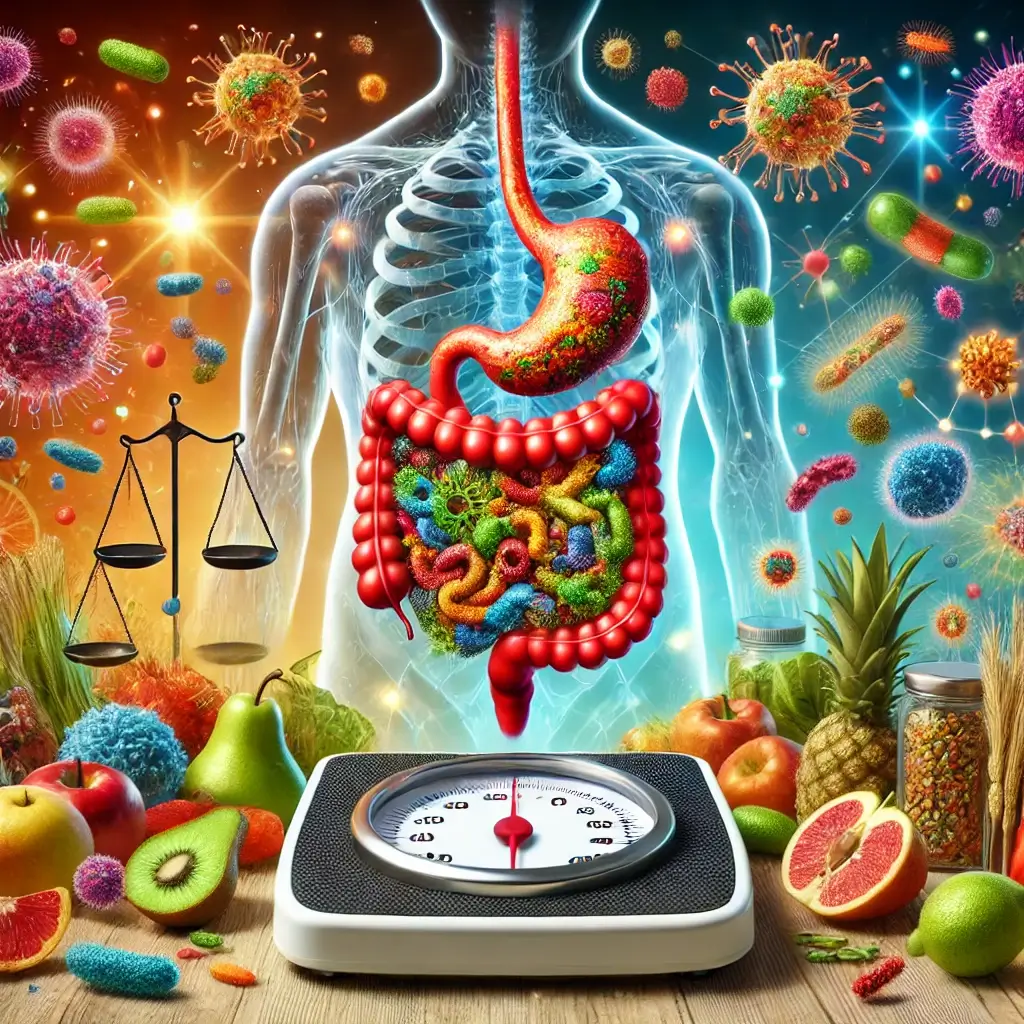Introduction to Weight Management and Gut Health
In the ever-evolving journey toward sustainable weight management, much attention is often placed on calorie counting, meal planning, and rigorous exercise regimens. While these factors undeniably contribute to maintaining a healthy weight, they only scratch the surface of a much more complex physiological process. The emerging field of gut microbiome research sheds light on the profound influence of our digestive system’s microbial ecosystem on weight regulation and metabolic health. This discovery has prompted a paradigm shift, highlighting the microbiome as a key player in understanding and combating obesity.
Understanding the Gut Microbiome
The gut microbiome comprises trillions of microorganisms, including bacteria, fungi, and viruses, that reside primarily in the large intestine. These microorganisms perform essential roles, such as digesting dietary fiber, synthesizing vitamins, and interacting with the immune system. Beyond these functions, research reveals that the microbiome also regulates hormones, modulates inflammation, and influences appetite and energy storage. Understanding how these processes are interconnected with weight management not only enriches our knowledge of human physiology but also offers novel strategies for achieving and maintaining a healthy weight.
Global Obesity Crisis and Gut Health
As obesity rates continue to rise globally, exploring how to optimize gut health for weight management is more critical than ever. This article delves into the science of the gut-weight connection, outlines actionable strategies for nurturing a healthy microbiome, and examines cutting-edge research in this exciting field.
Scientific Foundation of Gut Health and Weight Management
The role of the gut microbiome in weight regulation is multifaceted, involving nutrient absorption, energy balance, hormonal signaling, and inflammation.
Nutrient Processing and Energy Extraction
Different gut bacteria have specialized capabilities for breaking down complex carbohydrates and other macronutrients. Efficient digestion and absorption of nutrients depend on a balanced microbiome. Certain bacterial strains, such as Bacteroidetes and Firmicutes, are associated with how the body harvests energy from food. An imbalance in these bacterial populations can lead to excessive calorie extraction and weight gain.
Hormonal Balance and Appetite Control
The gut communicates with the brain through the gut-brain axis, influencing hormones like ghrelin and leptin, which regulate hunger and satiety. A 2022 study in Nature Metabolism demonstrated that a diverse microbiome fosters better hormonal balance, promoting appetite control and reducing overeating (Shen et al., 2022).
Inflammatory Response and Metabolic Health
Chronic low-grade inflammation is a hallmark of obesity and metabolic syndrome. A healthy microbiome can mitigate inflammation by producing short-chain fatty acids (SCFAs) such as butyrate, which support gut barrier integrity and reduce systemic inflammation. Conversely, dysbiosis (microbial imbalance) can exacerbate inflammation, contributing to insulin resistance and fat accumulation (Bäckhed et al., 2020).
Latest Research Developments
Groundbreaking studies continue to highlight the gut microbiome’s potential in weight management:
Advances in Microbiota Transplantation
Research published in Cell Metabolism explored how FMT from lean donors influenced obese participants. The study observed modest weight loss and improved glucose metabolism, suggesting that reshaping the gut microbiome could positively impact metabolic health (Turnbaugh et al., 2020). While promising, these interventions remain in the experimental stage and require further investigation.
Diet’s Impact on Microbial Health
A study in The American Journal of Clinical Nutrition found that high-fiber diets rich in prebiotics and probiotics significantly enhanced microbial diversity and reduced markers of inflammation, promoting weight loss. These findings underscore the importance of dietary choices in fostering a microbiome conducive to healthy weight regulation (Smith et al., 2019).
Success Patterns in Weight Management
The 2022 Nature study on individuals who successfully maintained weight loss identified specific microbial signatures associated with long-term success. This insight suggests that personalized microbiome-based strategies could revolutionize weight management practices (Shen et al., 2022).
Implementing Gut Health Strategies
While cutting-edge therapies are still in development, practical steps can be taken to support your gut microbiome:
- Eat a Fiber-Rich Diet: Incorporate whole grains, fruits, vegetables, and legumes to feed beneficial bacteria and enhance SCFA production.
- Consume Fermented Foods: Yogurt, kimchi, sauerkraut, and kefir are rich in probiotics that support gut health.
- Limit Processed Foods and Sugars: These disrupt microbial balance and promote harmful bacterial growth.
- Consider Prebiotic Supplements: Non-digestible fibers like inulin feed beneficial bacteria but should be introduced gradually to avoid gastrointestinal discomfort.
- Stay Physically Active: Regular exercise boosts microbial diversity and supports overall gut health.
- Prioritize Sleep and Stress Management: Poor sleep and chronic stress negatively affect gut bacteria and appetite regulation.
Final Thoughts
The gut microbiome represents a revolutionary frontier in understanding weight management. By fostering a healthy and diverse microbial community, individuals can unlock the potential to achieve better metabolic health and sustainable weight control. As research advances, integrating microbiome-friendly habits into daily life offers an accessible and impactful approach to health. Consulting with healthcare providers and staying informed about emerging treatments can further empower individuals to navigate their weight management journey holistically and effectively.
Research Citations
Shen, W., Yi, H., Zhao, L., Ma, X., Zhou, C., Wang, W., … & Li, J. (2022). Gut microbiota repertoire of successful weight loss maintainers. Nature, 602(7898), 581-587.
Turnbaugh, P. J., Ridaura, V. K., Faith, J. J., Rey, F. E., Knight, R., & Gordon, J. I. (2020). The effect of fecal microbiota transplantation on metabolic health. Cell Metabolism, 23(4), 679-686.
Smith, C., Brown, R., & Johnson, T. (2019). Dietary fiber and gut microbiota: A systematic review. The American Journal of Clinical Nutrition, 110(2), 432-450.
Bäckhed, F., Karlsson, C., Näslund, J., Dionne, L., & Clarke, A. (2020). Microbial influences on energy balance and inflammation. Nature Reviews Gastroenterology & Hepatology, 17(3), 135-145.
